- Home
- David Brin
The Heart of the Comet Page 7
The Heart of the Comet Read online
Page 7
Saul saw that a small audience had begun to gather at the open door to the lab, attracted from nearby offices. Malenkov noticed them and waxed even more enthusiastic.
“We might find more useful chemicals, maybe, like those Joao and Captain Cruz found on Encke. Why, there may even be some merit in that wild idea to use comets to terraform Venus or Mars! Eventually they might be made suitable for colonization.”
“Hah!” Quiverian snorted.
“Gentlemen,” Saul cut in. “I suggest we—”
But Quiverian ignored him, shaking a slender, plastic-coated sample tube at Malenkov. “This is the attitude I cannot bear. The original idea was to study comets, the most pristine of all God’s handiworks. But now knowledge for its own sake doesn’t seem to matter anymore. Now you not only want to harvest this comet, but recklessly alter entire worlds before we even understand them!”
Malenkov blinked in surprise at Quiverian’s anger. Saul knew that Nicholas had few political opinions. He was one of the most brilliant people Saul had ever met, but the man never seemed to learn that to some people a disagreement was not a chess game, not a sport for gentlemen. In this respect, he was a most unRussian Russian.
Saul tried once more to stop this. “Joao! Nick was only talking about possibilities. In thirty years Earth will have had time to decide…”
But the angry Brazilian wasn’t listening anymore. Quiverian’s left hand clenched the core tube and his right formed a fist. “We have just emerged from the most terrible century in human history… the worst for our world since the holocaust of the Pleistocene… and now idiots want to send giant iceballs hurtling down onto planets?”
“I never said—”
Quiverian stepped menacingly toward Malenkov. “Tell me, Doctor. How long before the target is not Mars, or Venus, but Earth?”
His arms chopped for emphasis, unwise in the weak pseudo-gravity. Quiverian flailed for balance and the long tube smashed onto the tabletop, splitting with a loud report. Dark brown ice, laced with black and white veins, spilled out onto the lab bench.
“Idiot! Goyishe kopf!” Saul caught the Brazilian before his head struck the big core microscope. He swiveled quickly and pointed at the people standing by the door.
“All of you, out! Shut that hatch and trigger the air seal. Nick, Joao, go get masks!”
Saul pushed Quiverian off toward the emergency cupboard. Moving quickly he grabbed up a plastic recycling container and dumped its wad of crumpled printouts onto the floor. By the time Malenkov returned, fastening a small mask over his face and holding out another, Saul was sweeping slivers of swiftly melting ice into the tub.
The Russian’s voice was muffled. “Your mask, Saul! Put it on.”
Saul shook his head and kept working. He had complete faith in his little bloodstream symbionts—in their ability to keep him safe from cyanide and other cometary poisons. They had better, or the colony wouldn’t last long inside Halley. Right now he was more concerned about preventing contamination of the other samples than danger to himself.
The spilled slivers seemed to give off a faintly pleasant aroma…reminding him of the almond groves of Lake Kinneret, in the Galilee at springtime.
“My core!” Quiverian cried out as he returned, fumbling with his face mask. “What are you doing, you meddlesome Jew`’ That was the deepest core we had taken!”
Saul swept up the last slivers, threw the sponge into the tub, and sealed its lid. There were more than a trillion tons of ice out there under Halley, ready to be studied. This loss was no scientific tragedy.
“Oh, but that’s not true, Joao,” Malenkov said reassuringly. The stocky. Russian sifted through the self-cooling tubes on the counter. “Why, only an hour ago my countryman, Otis Sergeov, returned with a new core, taken from a kilometer within Halley! Let me see if I can find it here.”
“Sergeov!” Quiverian cursed. “That fanatical Percell mutant? Oh, fates! There were so many fine planetologists who might have come along! Why, oh why have I been saddled such assistants—a huge Russian fool, a legless Percell, and a genetic w itch doctor!”
Malenkov shrugged and answered amiably, as if it were the most reasonable question in the world, “I guess you’re stuck with us because those other guys didn’t come along, Joao.”
Saul closed his eyes, and put his hands over them.
“Yaah!” Quiverian threw himself at the door, ignoring the yellow air-alert light, and burst out through the crowd outside.
“What is eating him?” Malenkov asked Saul after the door hissed shut again. He frowned. “Saul? What’s the matter? Are you in pain?”
Saul uncovered his eyes at last. They were filled with tears.
“Saul? My friend, I…”
Saul slapped the console next to him and laughed out loud, unable to contain it any longer.
“Joao is right,” he said, wiping his eyes. “Comet Halley definitely deserves better than this. But it’s stuck with us.”
Saul wasn’t surprised, a while later, when an officer came around to investigate the spillage incident. But he did blink when Lieutenant Colonel Suleiman Ould-Harrad entered, a clipboard in one hand and a trace-gas detector in the other. The dark-skinned Mauritanian was the last man Saul expected.
Ould-Harrad’s specialty was large, massive life-support systems, the kind they were installing on Halley right now. But he must have been the only one available at the moment to investigate the accident.
Everyone knew why Ould-Harrad was on this mission. The young officer had had friends in the Temple Mount Conspiracy, and only ties with the Mid-African royal family had won him exile instead of imprisonment for the crime of unwise associations.
The Mauritanian had spoken no more than ten words to Saul over the last three years. The regard had been returned.
Earth is far behind you, Saul reminded himself. And nothing can change the past. He stepped aside. “Come in, Colonel. I’ve already dictated an accident report. Go ahead and look around while I fast-fax a copy for you.”
Ould-Harrad seemed ill at ease as he followed Saul into the lab, his broad nostrils flaring at the faint aroma of escaped cometary gases. His eyes kept flicking to the gauges of the instrument. His dour expression seemed little cheered by Saul’s obvious good health.
“Dr. Lintz, you should not have remained here after the leakage alert was thrown.”
Saul tapped the face of a sense-screen display. “Yes, yes. I know. But somebody had to stay and clean up the mess. Anyway, I might as well be the first guinea pig. It’s appropriate, that I should give the blood cyanutes their first field test, no?”
The console spat out a small data pellet. Saul marked it with his namechop. He smiled up at Ould-Harrad. “If I drop dead, we all might as well climb into sleep slots and wait a few centuries to be picked up, ’cause this expedition is over.”
The spacer officer nodded curtly, accepting the logic. “There are rules, nevertheless. Procedures designed for collective safety and order.”
Saul tossed the data pellet to the other man and laughed somewhat bitterly.
“Safety and order, yes. How well I remember those words. Didn’t General Lynchon use that very phrase when his U.N. troops moved into the Judean hills?”
Ould-Harrad shook his head. “It was a consensus operation, Dr. Lintz. The coalition government of Israel-Inshallah invited them in.”
Saul nodded. “After the Levites and Salawites assassinated enough opposing legislators to get a majority.”
The African’s voice was low, as if he dreaded this topic but was drawn to it like a moth toward a flame. “The world was tired of centuries of strife in a region that had never known peace.”
“And is it better now.” The High Priest in Jerusalem reigns over a balkanized realm, with sect sniping at sect as never before.
“And did it help the planet? From the Nile to the Euphrates, Israel-Inshallah had planted more trees than existed before in all of Africa north of the equator. Last I heard, a third of the
forests were gone—chopped down to make barricades.”
Ould-Harrad’s skin deepened darker than its already rich shade. Saul thought about pulling back. He has already been punished.
Yes, but enough?
“Dr. Lintz, I…”
“Yes?”
Ould-Harrad shook his head. “I had nothing to do with the attempt to blow up the Great Temple. It’s true, I had friends in the Conspiracy—and in penance for that association I am on this I’ll-stared cruise—but I never wanted to bring harm to the holiest shrine of three faiths. I assure you, I would rather have torn out my…”
“Oh, you poor bastard,” Saul interrupted, half-pitying the fellow and laughing to crush his own painful memories. “For ten years you’ve heard but not listened, been punished but never understood. When, oh when will people like you ever come to understand that real Jews never wanted that blasted temple built in the first place?”
Ould-Harrad’s gas sensor hung from one hand, forgotten. He stared. “A few kibbutzim, some secular humanists fought it, I know. But—”
“But nothing!” Saul leaned forward. “The vast majority of Jews, in Israel and abroad, voted against it, argued against it, fought it every step of the way. It was compelled on us, by murderous fanatics and by an ignorant world all too eager for peace.”
Saul almost spat the word. “Peace! It wasn’t enough to destroy my nation and my family, Colonel Ould-Harrad. They installed priests that actually had the effrontery to tell me how to be a Jew! Even Hitler did not try to do that!”
In the faint, centrifugal tug of the gravity wheel, Ould-Harrad seemed to lose the strength to stand. He sagged into a web-chair.
“But the leader of the New Sanhedrin is of your Cohen priestly clan! And the Lead Temple Attendant is a Levite… The Pope’s Legate, the other Christians and Muslims, must take second place to the oldest faith’s precedence!”
Ould-Harrad shook his head. “My comrades objected to that humiliation—and to the removal of the beautiful mosque that stood where the temple was to go—but I don’t understand what the Jews had to complain of. Was not two millennia of prophecy being fulfilled at last?”
Saul did not answer immediately. He looked across the room, where the picture wall depicted the onion domes of old Kiev. Sunset flared brilliant tints across the steppes beyond the city walls. New gilt crosses once again topped the tower peaks, signifying Great Russia’s return to its mystical past.
Ten years, he thought. And still it seems impossible to make anyone understand.
Perhaps he owed it to the man, out of charity, to try. But how could one explain that Judaism had changed over two thousand years of exile, since the Romans burned the Temple of the Maccabees to the ground, slew the priests and scattered the people to the winds?
The remnants had wandered to strange climes, adopted alien ideas. Gradually, Hebrew farmers who pioneered the Polish and Russian plains were crowded by later peoples into cramped cities to become an urban folk. The priestly family lines—the Cohens and Levites—lost their influence. For how could they perform their rituals with no central site from which to make sacrifices to appease a terrible godhead?
Spiritual leadership fell upon the rabbi—the teacher—a role one did not inherit, but earned through learning and wisdom.
A role described in detail by Jesus, if the truth be told. Only he, too, had those who prophesied in his name. He, too, was followed by priests.
After a hundred years of strife and accomplishment, the alliance led by Israel had finally begun fraying during Saul’s youth. The Hell Century took its toll even in the belt that folk called “The Green Land.” Prophets appeared on street corners, and cults proliferated.
Islam, too, had suffered a hundred schisms, and Christianity was battered, divided.
Then someone had a bright idea… an obvious solution. And, like so many obvious solutions, it was disastrously wrong.
The Diaspora changed us, Saul thought. In exile, we became individualists, a people of books, and not of sacrifices on golden altars. We mourned the Temple. But wasn’t its burning a sign that it was time to know God in other ways?
How would Ould-Harrad ever understand that no modern Jew wanted anybody to intercede for him? Everyone had to come to his car her own understanding with God.
Ould-Harrad looked down at his hands. “When the conspirators blew up the Al Aqsa Mosque in protest, it was intended that the Levites take the blame, not the kibbutzim. The plan… they never wanted a bloodbath…”
He seemed unable to continue. Saul realized that the man was haunted by guilt and also, perhaps, by a dread that he might not ever even understand the role he had played.
Saul blinked away a memory of smoke over the Judean hills. He shook his head, knowing that there was no way he could help this man.
“I’m sorry,” he began softly. Then he cleared his throat. “Is that all, Colonel? If you’re finished, I have some important experiments under way.”
The black spacer looked up and nodded curtly. “I will report the situation under control.”
Saul had already turned back to his microscope when he heard the door hiss behind him. He tried to return to the business that had been interrupted, first by Joao Quiverian’s persistent questioning, and then by the dolorous Ould-Harrad, but his hands seemed locked over the controls.
“Room environment, dim lights by half,” he commanded aloud and the laboratory darkened in response.
Work, he knew, was a way to take himself away from the memories. “Sample AR 71B dash 78 S, on screen twelve,” he said to the ever listening, semi sentient lab computer. “Let’s see if those inclusions look as suspicious now as I thought they did before Joao stank up the place.”
The last part was not for the computer. And although he hunched over the holistank to immerse himself in mysteries, Saul found that he did not really mind at all the faint scent of ice and almonds in the air.
VIRGINIA
She tapped tentatively. Then, when no muffled answer came, a harder rap. This brought forth a faint, querulous grunt. When the panel finally hissed open, Virginia stepped through and stood barely inside, feeling the door suck shut behind her.
She said diffidently, “You had sample breakage?”
It seemed a good opening. The danger—if any—was well past before she had heard. Saul had already left the planetology department, where the sample broke, and come down here to his own bio lab. But the ripple of concern among the crew had made her at last muster the courage to seize a pretext.
“Ummm?” Saul was studying his screens, making tiny notes in a small ledger with an old-fashioned pencil. She wondered at this eccentricity; the expedition used standard electronic markers and memory pads. He must have brought a packet of notebooks in his own small, personal weight allotment. She had heard of bringing vintage cabernet and caviar, but not pencils, for heaven’s sake.
And look at me, she thought ruefully. I used up most of my mass-carry lugging along computer hardware everybody Earthside has given up as hopeless, a dead end.
She said nothing. Better to let him work a few moments, float up from the deeps. She walked among the tangle: twisted translucencies, shining chem lines, retorts, knots of cabling, a gurgle and rush of microbio diagnostics. I’m glad I’m not a chemist. Chilled electrons are simpler to move around.
“A few more minutes, Virginia. I’ll be right with you.”
Saul did not even look up as he jotted, thumbed his scanner, frowned. She strolled down one long lane, trying to read the indices on counters and follow the compact, involuted logic of the lab. Here Saul could dismantle genes like Tinkertoys, shuffle molecules like floppy cards. It always struck her as bizarre, how such innocent looking tubes and solutions could reach out, pluck human lives into new paths, seal off others. As if this sleeping machinery hid a monstrous, weighty force.
We keep doing that. Humans imbued their own devices with a separate presence and power, ceaselessly projecting their emotions onto inanimate templ
ates. Illogical—and the worst sinners in this were the supposedly objective, dispassionate scientists.
Look how I shape my software to resemble my thought processes, she mused. Imprinting myself in JonVon’s chilled organic lattices.
Making tier way here this afternoon. she had been struck by how the expedition was like this—separate rooms, immensely powerful ideas sealed off from each other, all contributing yet each isolated. Men and women pocketed into cylinders and cubes and spheres. They moved through the silent, cramped geometry of the Edmund, eager to go down and burrow their own niches in another hollowed world.
She wondered if the crew would communicate any better once they were down in Halley Core. Many of them had been working during the entire year-long cruise out, but she had been sleep slotted for ten months. Before launch, funding problems had cut the staging schedule for the expedition down to the bone; there hadn’t been time to know or even meet most of the crew.
She had studied the siting plans for Halley Core. It looked fine as a schematic, a diagram, an Earthside blueprint—but soon now they would each live in a Euclidean maze, encased. The faint grumbling of the G-wheel only underlined their impacted artificiality. She felt deeply these insides and outsides, sections and barriers.
So to counter that, she had come here. Plucked up her courage, finally. Reached out.
She fidgeted down one lab lane, up another. Each moment was a partition, dividing a troubled past from a gaping, empty future—both huge stretches of time pressing in on the thin wedge of a nervous rickety now.
Stop this aimless inspection. Face what you came here for.
But it was hard to jump the hurdle, and brave the sheer blind drop beyond.
“Saul.”
He swam up from fuzzy depths. “Uh, what, yes?” He blinked lines etching around his withdrawn eyes. “Sorry…”
“What… what are you finding?”
Even as she said it she winced. That’s right—dodge away. Ask him about his work, for chrissakes.

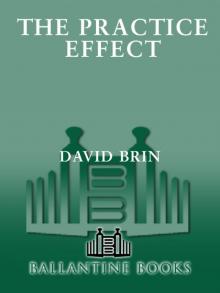 The Practice Effect
The Practice Effect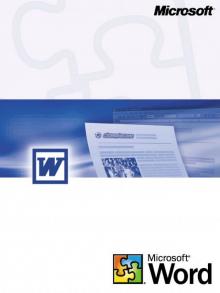 Infinity's Shore
Infinity's Shore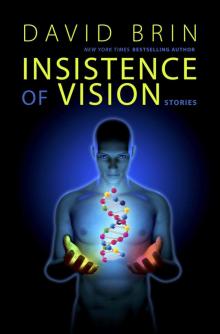 Insistence of Vision
Insistence of Vision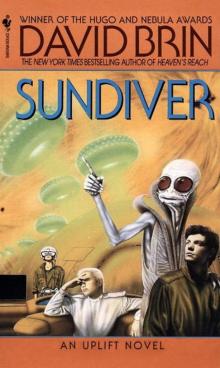 Sundiver
Sundiver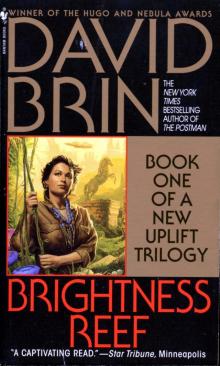 Brightness Reef
Brightness Reef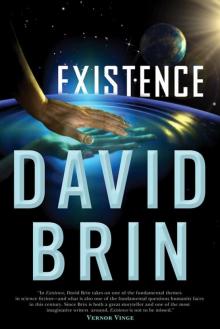 Existence
Existence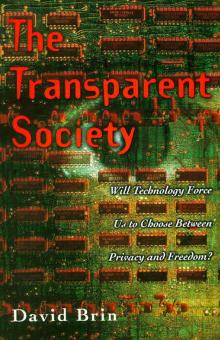 The Transparent Society
The Transparent Society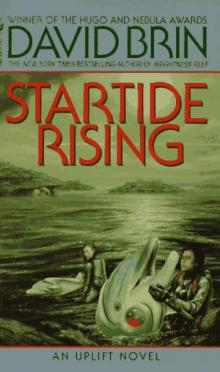 Startide Rising
Startide Rising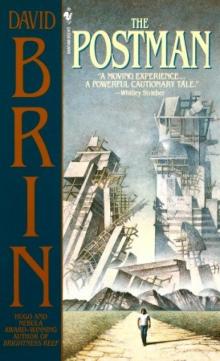 The Postman
The Postman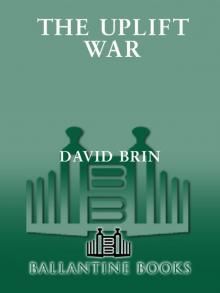 The Uplift War
The Uplift War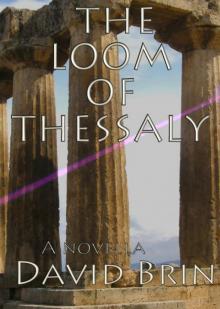 The Loom of Thessaly
The Loom of Thessaly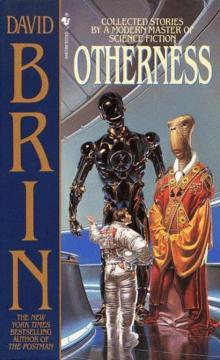 Otherness
Otherness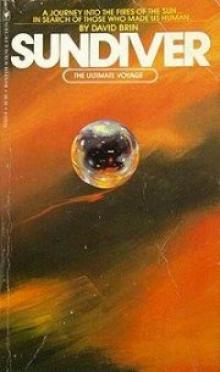 Sundiver u-1
Sundiver u-1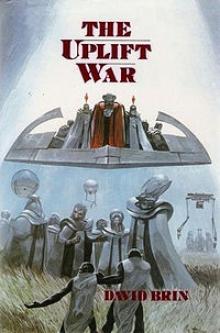 The Uplift War u-3
The Uplift War u-3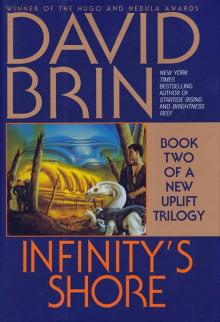 Infinity's Shore u-5
Infinity's Shore u-5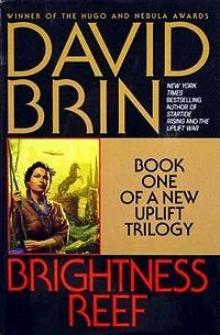 Brightness Reef u-4
Brightness Reef u-4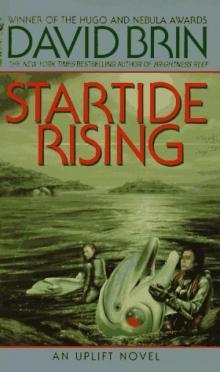 Uplift 2 - Startide Rising
Uplift 2 - Startide Rising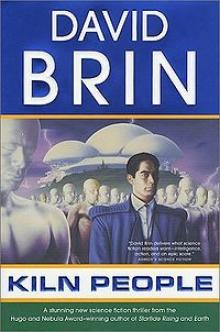 Kiln People
Kiln People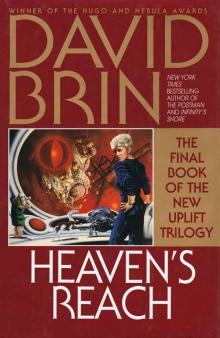 Heaven's Reach u-6
Heaven's Reach u-6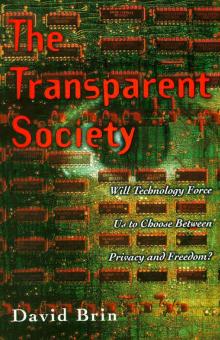 The Transparent Society: Will Technology Force Us to Choose Between Privacy and Freedom?
The Transparent Society: Will Technology Force Us to Choose Between Privacy and Freedom?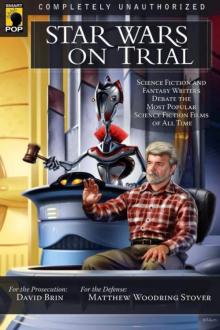 Star Wars on Trial
Star Wars on Trial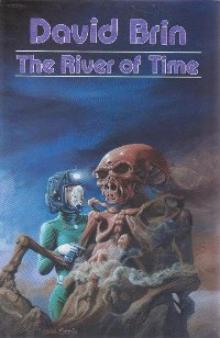 Lungfish
Lungfish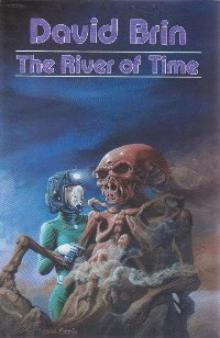 Tank Farm Dynamo
Tank Farm Dynamo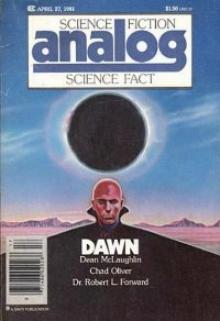 Just a Hint
Just a Hint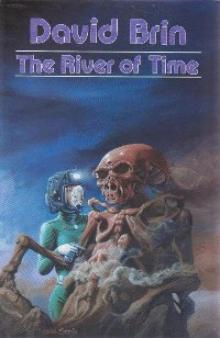 A Stage of Memory
A Stage of Memory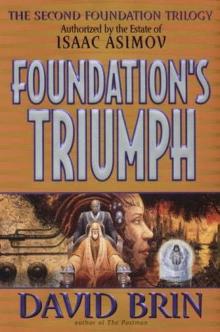 Foundation’s Triumph sf-3
Foundation’s Triumph sf-3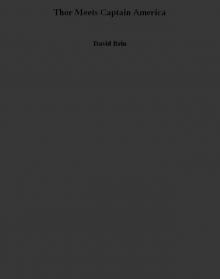 Thor Meets Captain America
Thor Meets Captain America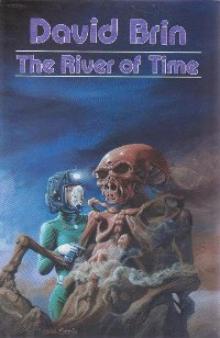 Senses Three and Six
Senses Three and Six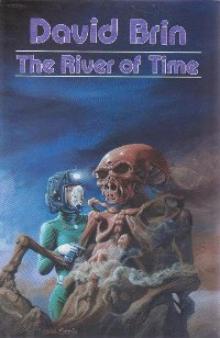 The River of Time
The River of Time Chasing Shadows: Visions of Our Coming Transparent World
Chasing Shadows: Visions of Our Coming Transparent World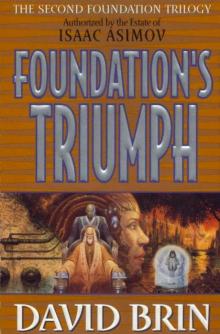 Foundation's Triumph
Foundation's Triumph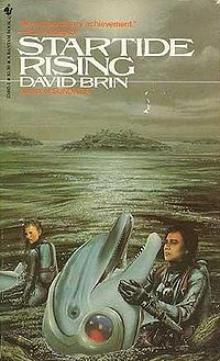 Startide Rising u-2
Startide Rising u-2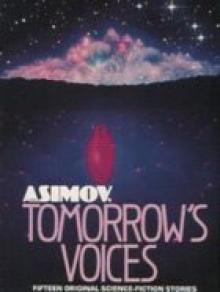 The Fourth Vocation of George Gustaf
The Fourth Vocation of George Gustaf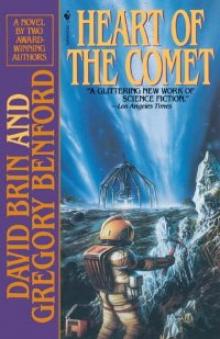 The Heart of the Comet
The Heart of the Comet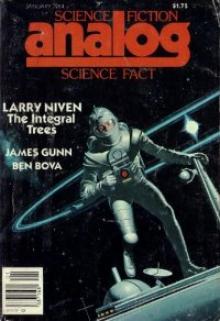 The Crystal Spheres
The Crystal Spheres